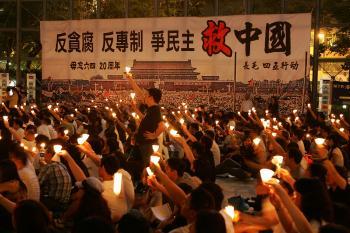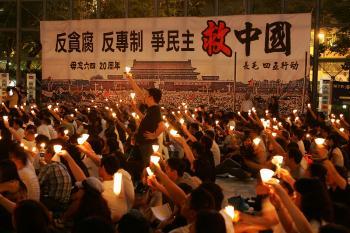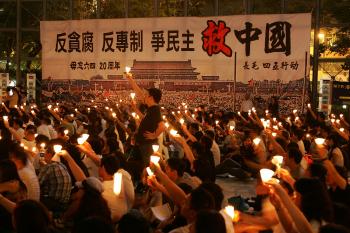China Briefs: June 4, 2009
News about China as reported around the world on the June 4 crackdown on Tiananmen Square.

Thousands of protestors hold candles during a candlelight vigil for the 20th anniversary of June 4 Tiananmen Square Massacre in Beijing at Victoria Park on June 4, 2009 in Hong Kong. MN Chan/Getty Image
|Updated:






